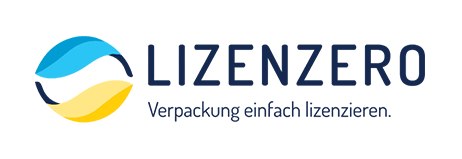The PPWR introduces the declaration of conformity for packaging. Here you can find out what it means and who it affects.
It may sound complicated, but it can have a positive impact on your packaging licence costs in various European countries. In addition to the obvious advantages in terms of environmental protection and marketing, sustainably designed packaging is also becoming more attractive because of increasing political efforts to promote it. An important instrument in this context is eco-fee modulation, which is part of circular economy policy at both national and European level. We explain what this is all about.
How easily can packaging really be recycled? This question is crucial for retailers and manufacturers, not only from an environmental perspective, but also in terms of licensing costs under the German Packaging Act (VerpackG).
The trade with goods bought on the Internet is constantly increasing. The number of shipped goods in e-commerce is growing every year in the double-digit range. This ongoing boom is casually generating a huge additional mountain of packaging waste. Politicians reacted by introducing a new, stricter German Packaging Act (VerpackG). What do online retailers have to do? We present an overview of the most important facts including instructions.
France has taken a groundbreaking step toward sustainable eco-design with a new regulation in its Circular Economy Act (AGEC). According to this development, all distributors of products in 12 different EPR areas are required to create prevention and eco-design plans. Eco-design, also known as ecological design or sustainable design, is a holistic approach that incorporates environmental impacts into the design process of products, services, and processes from the outset.
The plastic tax introduced by the European Parliament in 2021 aims to reduce the use of single-use plastics and thus lessen the environmental impact of plastic. The plastic tax requires individual EU countries to pay levies on their quantities of non-recyclable plastics in order to provide an incentive to stop using them. In the following article, we therefore take a look at how the financing of the levies is regulated in the various EU countries.
The Triman logo is a labelling system from France that is used to identify consumer information. It is intended to create a visual signal for consumers, informing them that the product and its packaging must be disposed of separately. Manufacturers and retailers must also add additional information on correct disposal next to the Triman logo. We explain what needs to be taken into account.
Around two and a half years after it initially came into force, the first amendment to the Packaging Act (also known as VerpackG2) took effect. Many of the changes affect retailers who sell their goods to private end customers. Since then, they have been subject to an extension of the existing registration, verification and documentation requirements. However, distributors of transport packaging in the wholesale sector are also affected by the change in the law. We have compiled a list of the specific changes in the amendment to the Packaging Act (VerpackG2) and what you need to know about them.
While Germany, for example, has the Packaging Act (VerpackG) with its specific obligations, other countries have chosen different approaches to transposing the Directive. This results in varying requirements from one country to another. In some European countries, such as France and Italy, there is – in addition to the obligation to license packaging – a country-specific labelling requirement. This article provides an overview of the labelling obligation in Italy, which is set out in the country’s packaging legislation.
How is packaging used to transport goods from retailer to retailer classified under the Packaging Act (VerpackG)? And what do companies need to consider when taking back packaging? We provide an overview and answer the most important questions.
This guide offers you a concise overview of the most important aspects of the PPWR, explains key terms and deadlines, and outlines how you can prepare for the upcoming changes from 2026 onwards.
Have you recently received an email from the Central Agency Packaging Register (ZSVR) asking you to report your initial planned volumes for 2025? We can help and guide you through the process step by step. So you'll be well prepared for the coming year.















